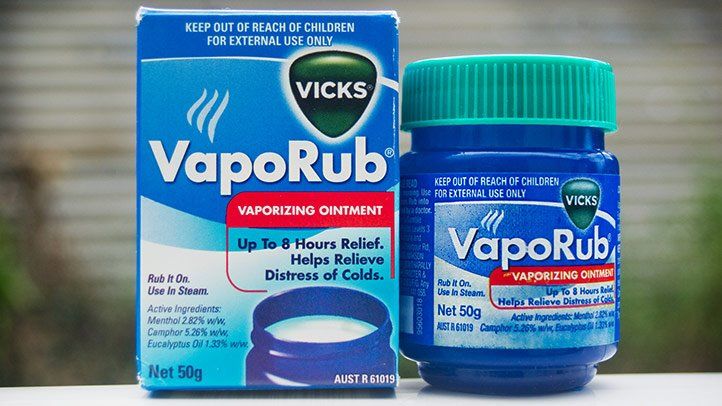Understanding Mucus and How to Pronounce It
Mucus is a slimy, slippery substance that coats and protects many areas of the body. While mucus plays an important role, having too much mucus can cause discomfort and symptoms like a runny nose, congestion, coughing, and throat clearing. When discussing mucus, it's helpful to know the proper pronunciation to clearly communicate with healthcare providers.
What is Mucus?
Mucus is produced by mucous membranes in the body, like those found lining the respiratory, gastrointestinal, and reproductive tracts. Mucus contains water, proteins, antibodies, and other substances. Some key functions of mucus include:
- Trapping germs, bacteria, viruses, and inhaled particles
- Moisturizing and protecting tissues and membranes
- Easing the passage of substances along membranes
In healthy amounts, mucus is clear to white and relatively thin. Increased mucus production leads to thicker discharge and is often white, yellow, greenish, or brownish in color.
How is Mucus Pronounced?
When speaking about mucus, the proper pronunciation is "myoo-kuh s". Breaking the word down phonetically, it looks like:
- myoo: The "myoo" sounds like "mew", such as the sound a kitten makes.
- kuh: The "cuh" sounds akin to "huh", an expression of inquiry or slight confusion.
- s: A hissed "s" sound, as in the word "hiss".
So putting those pieces together: myoo (mew)-kuh (huh)-s (hiss). Say the word smoothly, moving from one sound the next. Avoid emphasizing any one part of the word too strongly.
Why is the Pronunciation Important?
Getting the pronunciation of mucus correct is important for clear communication, especially when speaking with healthcare practitioners about related concerns. Saying "mucus" correctly demonstrates an understanding of the term and the role it plays in the body.
Additionally, an incorrect pronunciation could potentially lead to confusion or misinterpretations. For example, mispronouncing mucus as "myu-kus" could potentially cause someone to think a different substance or condition is being discussed.
Causes of Excess Mucus Production
Many factors can trigger an increase in mucus secretion. Some common causes include:
Infections
Infections from bacteria, viruses, and fungi often stimulate more mucus production as the body tries to trap and expel the pathogens. Respiratory infections like bronchitis, pneumonia, and the flu frequently lead to increased mucus.
Allergies
Allergic reactions prompt inflammation in the body, which can boost mucus secretions. This is especially common with seasonal allergies affecting the nasal passages and sinuses.
Irritants
Irritating particles and substances, like cigarette smoke, air pollution, or chemical fumes often elicit a mucus response. The mucus attempts to prevent irritants from reaching tissues.
Structural Issues
Structural problems impacting membranes and ducts can interfere with mucus flow, resulting in backup and buildup. Polyps, cysts, tumors, or damage from gastric reflux are examples.
Key Symptoms of Excess Mucus
Too much mucus tends to accumulate in the sinuses, nasal cavity, throat, lungs, and gastrointestinal tract. Typical symptoms may include:
Runny Nose and Postnasal Drip
Increased nasal mucus often drains backward into the throat as postnasal drip, causing cough, sore throat, throat clearing, and sometimes nausea.
Congestion and Stuffy Nose
Obstructed nasal and sinus passages make breathing through the nose difficult. Congestion may also muffle hearing and the sense of smell.
Excess Phlegm and Coughing/Throat Clearing
Extra mucus dripping down the airways triggers coughing as the body tries to expel it. People often hawk mucus from the throat as well.
Watery Eyes
Nasal congestion and swelling of mucous membranes can dam tears in tear ducts. This results in watery eye discharge.
Digestive Changes
Too much mucus in the gut may present as diarrhea, constipation, abdominal pain, nausea, or vomiting if flow becomes significantly impacted.
Treatments for Excess Mucus
To help relieve troublesome mucus symptoms, possible treatments include:
Nasal Saline Rinses
Saline solutions wash mucus and irritants from nasal passages, providing relief for sinus congestion and dripping mucus down the throat.
Medications
Medications that dry up mucus secretions, like antihistamines and decongestants, as well as cough suppressants may be recommended. Antibiotics treat bacterial infections associated with increased mucus.
Dietary Adjustments
Avoiding mucus-producing foods like dairy, gluten, and processed fare may help some people. Staying hydrated also keeps mucus thinner.
Humidifiers
Adding moisture to the air with humidifiers can ease breathing and thin out thicker mucus secretions clogging the nasal passages.
When to See a Doctor
In most cases, minor mucus irritation resolves on its own. However, contact a healthcare provider if any of the below apply:
- Symptoms last longer than 10-14 days
- Mucus is yellow, green, or bloody
- Shortness of breath or difficulty breathing
- High fever, chills, or severe headaches
- Severe pain, pressure, or discomfort
- Symptoms worsen or interfere with sleep/daily life
Seeking medical care allows proper diagnosis and treatment of any issues causing ongoing increased mucus production and related symptoms.
The Key Points
- Mucus is a protective, moisturizing substance lining membranes in the respiratory, digestive, and reproductive systems.
- The correct pronunciation of mucus is "myoo-kuh s". Breaking it down: myoo (mew) - kuh (huh) - s (hiss).
- Infections, allergies, irritants, and structural issues often increase mucus amounts.
- Excess mucus leads to congestion, runny nose, coughing, postnasal drip, watery eyes, and digestive upset.
- Treatments aim to thin mucus, treat underlying causes, and relieve symptoms interfering with daily life.
- See a doctor if mucus problems persist beyond 10-14 days or significantly worsen.
FAQs
How do you say mucus?
The correct pronunciation of mucus is "myoo-kuh s". Break it down into "myoo" (mew), "kuh" (huh), and a hissed "s" sound at the end. Say the full word smoothly, avoiding overemphasis of any single syllable.
Why do I have thick mucus in my throat?
Thick, sticky mucus often accumulates from postnasal drip, which is mucus sliding down the back of the throat from the nasal area. Sinus infections, allergies, dry air, and irritants commonly trigger excess mucus production in the sinuses and nasal cavity.
Is mucus good or bad?
Mucus is a helpful substance that traps germs, moisturizes membranes, and eases passage of substances within organ systems. However, too much mucus can cause uncomfortable congestion, dripping in the throat, coughing, and other issues. Finding the right mucus balance is key.
What color mucus is bad?
Clear and white mucus are normal, but yellow, green, brown, or blood-tinged mucus can signal more serious infection or inflammation. Pay attention to significant mucus color changes, especially those lasting over 10-14 days without improvement.
Disclaimer: This article is for informational purposes only and does not constitute medical advice. Always consult with a healthcare professional before starting any new treatment regimen.
Related Coverage
Alka-Seltzer and NyQuil both treat cold and flu but contain different active ingredients. Know when to use each for symptoms like cough, fever, body aches....
Do you have a perpetually frozen nose? Genetic factors, poor circulation, inflammation, or lifestyle habits may impair your nose's ability to warm itself. Try heat, massage, humidifying....
Yellow mucus meaning can signal your immune system at work. Learn what color changes say about infections, allergies, and when to see a doctor....
From postnasal drip to laryngopharyngeal reflux, discover what's causing your throat to feel tickly and scratchy. Try home remedies, OTC meds, and professional treatments to find relief....
A stuffed up nose is normally just a nuisance, but for vulnerable groups it can occasionally turn dangerous if infections spread or breathing is obstructed....
Soothe sinus pain and pressure with effective natural remedies like steam, salt therapy, herbs, and diet changes. Natural treatments provide safe sinusitis relief....
Learn about the risks and benefits of using Vicks VapoRub in bathwater. Understand safety concerns over camphor and other ingredients when heated and inhaled....
An onion honey pot harnesses the medicinal benefits of onion and honey to relieve coughs. Learn how to make this traditional remedy at home....
Cut through the conflicting advice about carbs with tips on choosing quality whole food carbs in proper portions for weight loss, blood sugar control, energy and health....
Naturopathic medicine provides complementary care emphasizing natural treatments, prevention and root causes of illness. Explore top naturopathic doctors in Gilbert, AZ....









